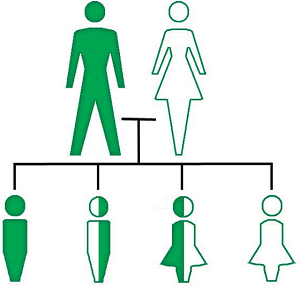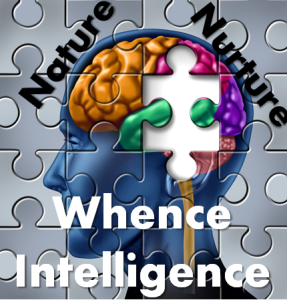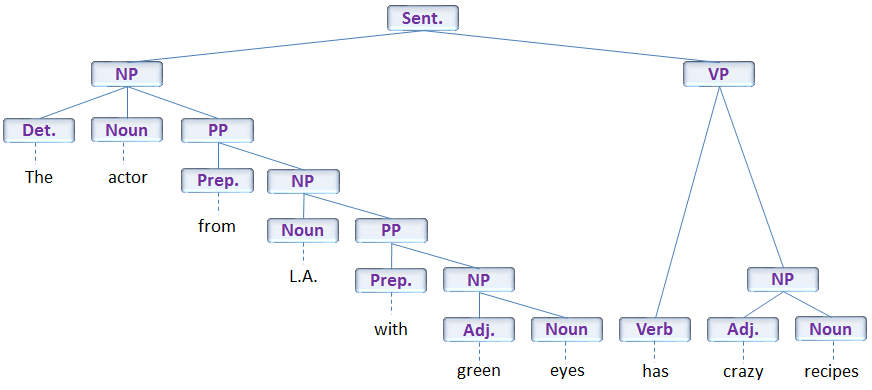27 Feb Chomsky, Locke and Aristotle on Learning Language
Inherited Abilities
 In systems design, there is a growing trend to “hard code” less into the system and leave more to be configured by the person or organization that is using the software. The growth of Rules and Workflow Engines that can be managed by non-technical users is prime evidence of this trend. And yet, the complex instruction sets that are built into computer chips seem to buck this trend. How much of our knowledge and ability to learn come built into our inherited cognitive hardware and software? Let us join once again, for a moment, the ageless and ongoing debate as to how much of our software is pre-programmed (we are born with it) and how much is learned in the course of living and growing.
In systems design, there is a growing trend to “hard code” less into the system and leave more to be configured by the person or organization that is using the software. The growth of Rules and Workflow Engines that can be managed by non-technical users is prime evidence of this trend. And yet, the complex instruction sets that are built into computer chips seem to buck this trend. How much of our knowledge and ability to learn come built into our inherited cognitive hardware and software? Let us join once again, for a moment, the ageless and ongoing debate as to how much of our software is pre-programmed (we are born with it) and how much is learned in the course of living and growing.
The community of linguists is a community where the nature vs. nurture debate in learning language is particularly intense. Why is the academic discipline of linguistics a part of the study of cybernetics? The answer is simple: communication is one of the most complex cognitive processes. It is important to note that many of the theories popularized throughout the past century have divorced language from cognition. Others have attempted to explain important cognitive aspects of linguistics in terms of syntax heredity as opposed to the combination of environment, physiology and practicality that governs all of our other responses to the world.
| Understanding Context Cross-Reference |
|---|
| Click on these Links to other posts and glossary/bibliography references |
|
|
|
| Prior Post | Next Post |
| Physiology of Learning to Generalize | Sense-Perception and Memory |
| Definitions | References |
| learning language | Devlin 1997 Locke 1689 |
| knowledge cybernetics | Quine – RIT Noam Chomsky |
| Universal Grammar | Aristotle (1) (2) (3) (4) (5) (6) |
In Goodbye, Descartes (1997), Keith Devlin describes a cosmology of the mind in which we are born with a certain basis of grammar knowledge that enables us to become fluent communicators in our native language. Obviously, Devlin believes nature is more important than nurture when it comes to language development.
Noam Chomsky, perhaps the greatest linguist of the past century, has come down firmly on the side of nature. Like Devlin, he believed that humans are born with knowledge of a universal grammar which serves as a basis for our ability to communicate. This universal grammar is generic, he says, when we are born, and matures and takes shape as we learn our native language. The universal grammar helps us construct complete sentences that help us to understand, and to be understood. “Chomsky’s theory proposes that the human brain contains a predefined mechanism (universal grammar) that is the basis for the acquisition of all language. In analogy, the brain can be thought of as a kind of partially programmed machine that is ready to be configured. The configuration comes from encounters with the perceived world through the senses, and thus the corresponding language pattern forms” (Quine – RIT).
Locke On Innateness
 On attempting to discover innate elements of knowledge, Locke insists that we should not “out of an affectation for universal knowledge” argue about notions beyond the range of our present understanding. We should follow hypothesis with experimentation and demonstration, not build our theories on untested hypotheses. The latter form of dispute has occupied a disproportionate amount of energy in some scientific communities. Theories of innate knowledge, persuasive or not, will remain relatively shallow until a scientifically credible mechanism is demonstrated to prove them.
On attempting to discover innate elements of knowledge, Locke insists that we should not “out of an affectation for universal knowledge” argue about notions beyond the range of our present understanding. We should follow hypothesis with experimentation and demonstration, not build our theories on untested hypotheses. The latter form of dispute has occupied a disproportionate amount of energy in some scientific communities. Theories of innate knowledge, persuasive or not, will remain relatively shallow until a scientifically credible mechanism is demonstrated to prove them.
Locke states his theory of innateness in the title of Book 1 of Concerning Human Understanding: “Neither Principles Nor Ideas Are Innate.” If knowledge, abstract or concrete, is innate and explicit, Locke believes people should be aware of and able to access it. No such knowledge has been conclusively demonstrated. If it is innate, but implicit, “having no exposure to anything contrary,” a person should be influenced by the knowledge at some time. Studies have shown this is clearly not the case with “wild” children who have been raised without language. If it is innate but one is also likely to acquire the knowledge through exposure, its innateness is irrelevant or not provable (Locke, p. 5-14, passim).
Aristotle On Innateness
Aristotle was an early thinker in the lineage of great thinkers who rejected the notion that knowledge is inherently innate. Instead, he believed that each of us has the mental capacity to collect and store knowledge acquired through logical learning abilities. In short, Aristotle took the nurture side of the nature vs. nurture argument. His views on the subject are clearly evident in Metaphysics (Book 1, Chapter 9) and Posterior Analytics (Book 2, Chapter 19) as well as elsewhere in his work:
 “Again, perception is generated at the same time as the perceiving subject, for it comes into existence at the same time as the animal. But the perceptible surely exists before perception” (Categories, Chapter 7). “The faculty of thinking then thinks the forms in the images” (On the Soul, Book III, Chapter 7). “It is not the stone which is present in the soul but its form” (Ibid, Chapter 8). Innate knowledge of intellectual or grammatical patterns would be either ruled out by Aristotle’s description, or the innate knowledge would have to be described as something other than “form” or pattern.
“Again, perception is generated at the same time as the perceiving subject, for it comes into existence at the same time as the animal. But the perceptible surely exists before perception” (Categories, Chapter 7). “The faculty of thinking then thinks the forms in the images” (On the Soul, Book III, Chapter 7). “It is not the stone which is present in the soul but its form” (Ibid, Chapter 8). Innate knowledge of intellectual or grammatical patterns would be either ruled out by Aristotle’s description, or the innate knowledge would have to be described as something other than “form” or pattern.
Behaviorists, and others, counter that inheritance plays a minimal role in language learning.
In 1997, when I first drafted this analysis, many scientists, particularly in the field of linguistics, hung their hats on universal grammar theories based on the assumption that a lot of our knowledge is preprogrammed in our brains. These linguists believe grammar is innate. The larger classical argument is the old nature vs. nurture one. Aristotle, like Locke and many others, clearly comes down on the nurture side of the argument.
Which side am I on in the nature vs. nurture debate? Please don’t take me for a behavioralist – that I ain’t. But I am way beyond center on the nurture side of the nature vs. nurture continuum when it comes to language. Read my posts in Section 6 to learn more about the computational linguistic perspectives that led me to this conclusion.
| Click below to look in each Understanding Context section |
|---|









